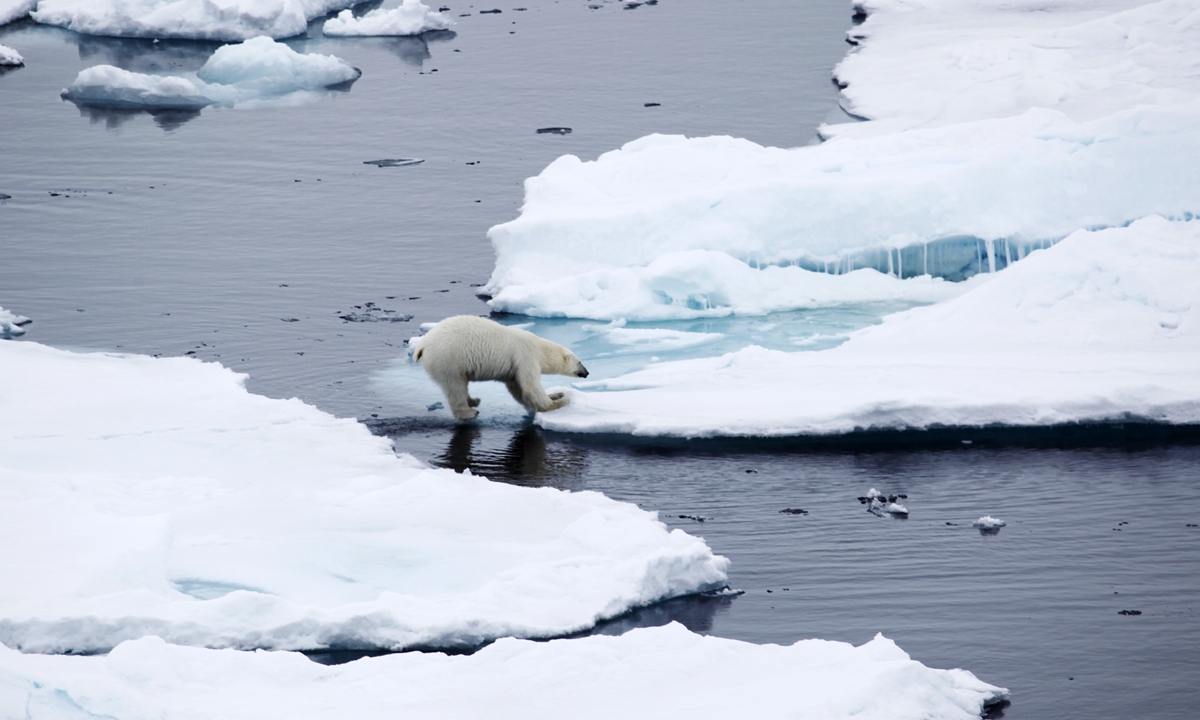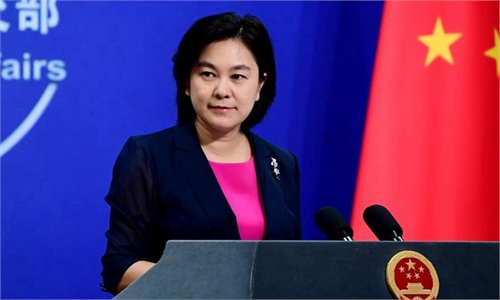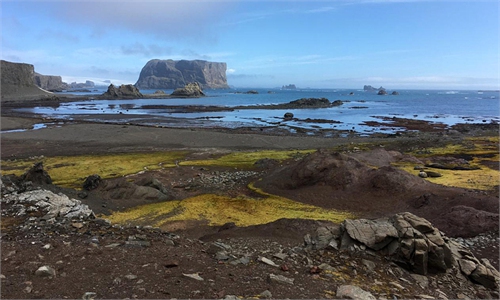
Photo: VCG
The US Navy on Tuesday released its new Arctic strategy about how it plans to become increasingly active in the region. Washington alleges that the Arctic is facing economic and military competition from Moscow and Beijing.The US has repeatedly hyped an agenda on the Arctic and the so-called challenges Russia and China purportedly pose to the region. This is because the Arctic is of great significance in terms of politics, economy and military. Economically, the abundant resources are of great strategic value. Its territory and exclusive economic zone have strong political implications. When it comes to military matters, this region has been a hotly contested spot. During the Cold War, the Arctic was under intense scrutiny as the region represented the shortest strike path for intercontinental ballistic missiles and nuclear submarines between the former Soviet Union and the US.
US Secretary of State Mike Pompeo on Monday tweeted that "it is a communist fiction for China to be a 'near-Arctic nation.'" As an outgoing US politician who has devoted himself to attacking China, Pompeo's anti-China rhetoric can be ignored. But it has been a fact that Washington is not pleased to see China's involvement in the Arctic. Washington believes that once a country owns political, economic and military interests in the Arctic, this country will endanger the US' global hegemony. Furthermore, with Washington labeling China its strategic rival, it becomes more sensitive toward China's activities in the Arctic.
However, the fact is that China's all kinds of activities in the Arctic have not imperiled the interests of the US, or any other members of the Arctic Council. China actively promotes scientific expedition and research in the Arctic. This is out of the global need to protect environment and deal with climate change.
Beijing has also made great efforts to jointly develop the region with Moscow. For example, both countries jointly built a sea route and engaged in energy cooperation. It is conductive for China to build the "Ice Silk Road" platform to further develop China's economy and tackle domestic energy demands. These activities help China and Russia achieve a win-win result and are only a normal coordination between the two countries. Other countries are in no position to point an accusing finger.
China does not seek to strengthen its military presence in the Arctic, which belongs to all humanity, not just the eight members of the Arctic Council.
"Without sustained American naval presence and partnerships in the Arctic region, peace and prosperity will be increasingly challenged by Russia and China," noted the 25-page document released by the US Navy Tuesday. By asserting its interests in the Arctic, Washington aims to maintain global hegemony. The US contended with the former Soviet Union for hegemony in the region during the Cold War. Now, what the US needs more is to compete for interests in the Arctic with Russia.
The US has enlisted Canada, along with several Nordic countries, to jointly oppose Russia over the Arctic. It is also building an army to realize its hegemonic interests in the Arctic. The biggest problem in the Arctic lies in the relationship between the US and Russia.
The incumbent US administration has withdrawn from the Paris Agreement and is unwilling to play its part for stopping global warming. Now the global temperature is rising, which is a disaster for the Arctic. The ecosystem there is fragile, and problems are likely to occur as ice melts. The US, instead of protecting the Arctic and strengthening sustainable development there, has brought more damages to it through various activities.
In particular, by strengthening the military presence in the Arctic, the US itself is damaging the delicate ecological balance of the Arctic. Economic development, especially, will also contribute to the destruction of the ecological balance in the Arctic too. Washington only sees the Arctic as a strategically important place to strengthen its political and economic influence - regardless of the protection of the area.
The author is a Chinese military expert and commentator. opinion@globaltimes.com.cn


